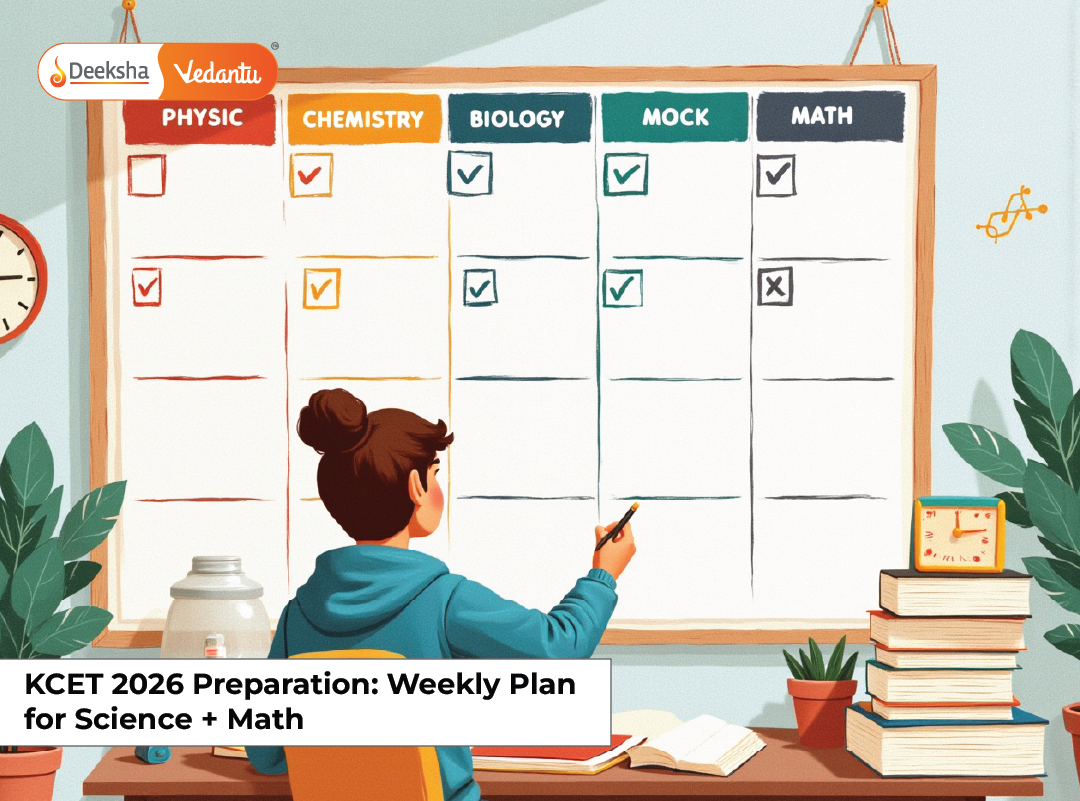Why 180+ in JEE Maths Matters
Scoring 180+ in JEE Mains Maths isn’t just impressive — it’s a game-changer. A score like this can push your overall percentile beyond 99, improve your total rank dramatically, and significantly increase your chances of getting your preferred NIT, IIIT, or GFTI branch. It also boosts your confidence for JEE Advanced and other competitive exams. A high score in Maths is particularly useful because it acts as a tiebreaker in many engineering entrance scenarios and reflects strong analytical thinking.
But how do you reach this score? It’s not just about solving more problems — it’s about solving the right problems smartly and consistently. With a clear plan, structured revision, and regular self-evaluation, even students starting from a moderate level can reach this target.
Step-by-Step Strategy to Score 180+ in JEE Maths
1. Master the High-Weightage Topics First
Focus on chapters that frequently carry high weight in JEE Mains:
- Coordinate Geometry (Parabola, Circle, Ellipse, Hyperbola)
- Calculus (Limits, Derivatives, Integrals, Differential Equations, Area Under Curves)
- Algebra (Quadratic Equations, Complex Numbers, Matrices, Determinants, Binomial Theorem, Sequences and Series)
- Probability and Statistics (Bayes’ Theorem, Mean and Standard Deviation)
- Vector and 3D Geometry (Direction Cosines, Line and Plane Equations)
Spend more time mastering these areas with concept clarity and application depth. Solve a wide range of problems for each concept and ensure you can tackle both direct and application-based questions.
2. Stick to NCERT First, Then Practice Beyond
NCERT is the foundation. Go through every solved and unsolved example before advancing. Then move to:
- Cengage Series for advanced problem sets
- Arihant’s Practice Book (especially for short tricks and exam-style problems)
- 36 Years Chapterwise JEE Questions
- Mock Tests from reputed platforms like Deeksha Vedantu, FIITJEE, or Allen
While practicing, ensure you don’t just solve — you understand every question and its concept. Make annotations in your textbook to connect concepts across chapters.
3. Follow the 30-40-30 Rule While Practicing
Balance your time and question difficulty:
- 30% time: Easy-level and warm-up problems for concept recall
- 40% time: Standard JEE-level problems to build confidence
- 30% time: Tough and high-level questions to simulate exam pressure and boost logical thinking
The goal is to stretch your limits gradually without losing confidence or motivation.
4. Practice in Timed Sets (3-Hour Blocks)
Create a JEE-like environment:
- Take full-length subject-specific mocks under timed conditions
- Solve without breaks to build mental stamina
- Practice bubbling OMRs or marking answers digitally to simulate the CBT (Computer-Based Test)
Time-based practice trains your brain to function optimally under stress — a vital skill for JEE.
5. Maintain a Chapter-Wise Mistake Book
Every mistake is a potential mark lost in the actual exam. Build a logbook:
- Write down each question you get wrong
- Describe the reason behind the mistake: Calculation error? Misread question? Weak concept?
- Revisit these mistakes every week to ensure they’re not repeated
Over time, this book becomes your most powerful revision weapon.
6. Weekly Mock Tests and Analysis
Take one or two full-length Maths mock tests each week. Use the following criteria to evaluate:
- Accuracy rate (Target: >85%)
- Speed analysis (Time per question <2.5 minutes ideally)
- Chapter-wise strength and weakness matrix
- Trend tracking: Are you improving every week?
Deeksha Vedantu’s AI-powered test analytics break this down automatically and provide recommended actions.
7. Visual Learning with Graphs & Diagrams
Conic sections, vectors, and 3D geometry are best learned visually. Use tools like:
- Graph plotting software
- YouTube explainer videos with animation
- Coordinate plane sketching in rough notebooks
Visual learning not only boosts understanding but also improves retention and recall during the exam.
8. Use Flashcards and Formula Sheets
- Create flashcards for quick revision: One concept, one example per card
- Update formula sheets regularly and pin them near your study desk
- Review every night before bed and every morning before starting your study
You’ll be surprised at how much passive recall helps in exams.
Smart Practice Techniques That Work
Focus on Solving, Not Just Reading
Many students waste hours passively reading solutions. Instead:
- Try every problem before seeing the answer
- Use a separate notebook for practice-only attempts
- Speak out your thought process as if teaching someone else
This trains your brain to think in structured steps.
Target Speed Without Compromising Accuracy
- Divide mock tests into 3 rounds: easy questions (1st round), moderate (2nd), and difficult (3rd)
- Avoid obsessing over one question — mark and revisit
- Use time-per-question analysis to find where you’re slowing down
Focus on completing the paper first, then improving speed.
Mix Topics in Revision Sets
Instead of revising Coordinate Geometry for 3 hours, try a set like:
- 2 questions from calculus
- 3 from vectors
- 2 from algebra
This trains you to switch gears — a key requirement for JEE.
Prioritize Quality Over Quantity
Rather than solving 100 problems from one book, solve 20 handpicked ones:
- Different difficulty levels
- From previous years
- With full solutions analyzed afterward
Deep focus > shallow repetition.
How Deeksha Vedantu Helps You Reach 180+ in JEE Maths
- Concept-Building Classes: Strong conceptual teaching with multiple approaches to each topic — formula-based, logical, visual
- Daily Practice Papers (DPPs): Well-researched questions updated based on recent trends and problem types
- Mock Tests with Ranking: Our tests mimic NTA’s CBT format, with live leaderboard and percentile prediction
- Mentor Feedback: Weekly feedback calls or sessions with faculty to discuss mistakes, adjust focus areas, and reduce burnout
- Doubt Sessions: Unlimited doubt-solving through app, live classes, or one-on-one mentoring — so students never get stuck for long
- Personalized Roadmaps: We design chapter-wise plans, test goals, and mini-targets tailored to your strengths and weaknesses
FAQs
1. Is it realistic to score 180+ in JEE Mains Maths?
Absolutely. If you start early, follow a structured plan, and evaluate consistently, 180+ is not just achievable — it’s expected.
2. How much time should I devote daily to Maths?
At least 2.5 to 3 hours every day, with focused problem-solving, revision, and 30 minutes of concept strengthening or mock test review.
3. Should I focus more on theory or problems?
Initially 20% of your time can go to theory. The rest (80%) should be for solving problems, revision, and self-testing.
4. How can I avoid silly mistakes in the exam?
Silly mistakes usually come from rushing or ignoring units. Mock tests help train your mind to slow down slightly and cross-check answers.
5. Is solving previous year questions enough?
It’s a strong foundation, but not enough. Use PYQs to identify trends, then practice mock tests and error analysis to refine your preparation.
Conclusion
Scoring 180+ in JEE Maths is not reserved for the top 1% — it’s achievable with discipline, a focused strategy, and consistent practice. Remember, smart work trumps hard work. Identify your weak spots, revise effectively, and practice in exam-like settings. Deeksha Vedantu’s well-researched mock tests, expert mentorship, and structured learning pathways make this journey more guided and efficient. With the right guidance and commitment, 180+ is not just a goal — it’s your next milestone.
Table of Contents














Get Social